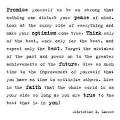Very little is known about the life of Fulgentius other than the few references he makes to himself in his own works. His style of Latin, knowledge of Greek, and his view on classical authors and cults suggests that he was likely educated in colonial North Africa. Other references to African culture in his work support placing him in this region, clearly before the Muslim invasions of the 7th century. Moreover, his apparent knowledge of the Libyco-Berber language and script indicates that he was probably an ethnic African, with him referring to the language in his On the Ages of the World and of Man as being part of his 'own' heritage. Traditionally Fulgentius has been thought to have a professional career as a grammaticus or rhetor (teacher of rhetoric). However, this belief is based on small incidental clues Fulgentius leaves behind in work and has been contested by some scholars. It remains possible that he was simply an amateur writer. In his prologue to Book 1 of the Mythologies, Fulgentius mentions a wife, though it is unclear whether this is a genuine autobiographical detail or part of his fictional persona in the story.

yourself to be so strong
350 × 350 - 33k - jpg
mulattodiaries.wordpre...

yourself to be so strong
350 × 350 - 33k - jpg
mulattodiaries.wordpre...
yourself to be so strong
350 × 350 - 33k - jpg
There is a continuing debate as to whether or not Fabius Planciades Fulgentius, and a contemporary, Saint Fulgentius of Ruspe (a bishop of the Catholic Church) were in fact the same person. The identification of the two Fulgentii was first made by medieval scholars and scribes as far back as the Carolingian period.
yourself to be so strong
350 × 350 - 33k - jpg
mulattodiaries.wordpre...

yourself to be so strong
350 × 350 - 33k - jpg
mulattodiaries.wordpre...
yourself to be so strong
350 × 350 - 33k - jpg
There is a continuing debate as to whether or not Fabius Planciades Fulgentius, and a contemporary, Saint Fulgentius of Ruspe (a bishop of the Catholic Church) were in fact the same person. The identification of the two Fulgentii was first made by medieval scholars and scribes as far back as the Carolingian period.
Subscribe to:
Post Comments (Atom)

















No comments:
Post a Comment